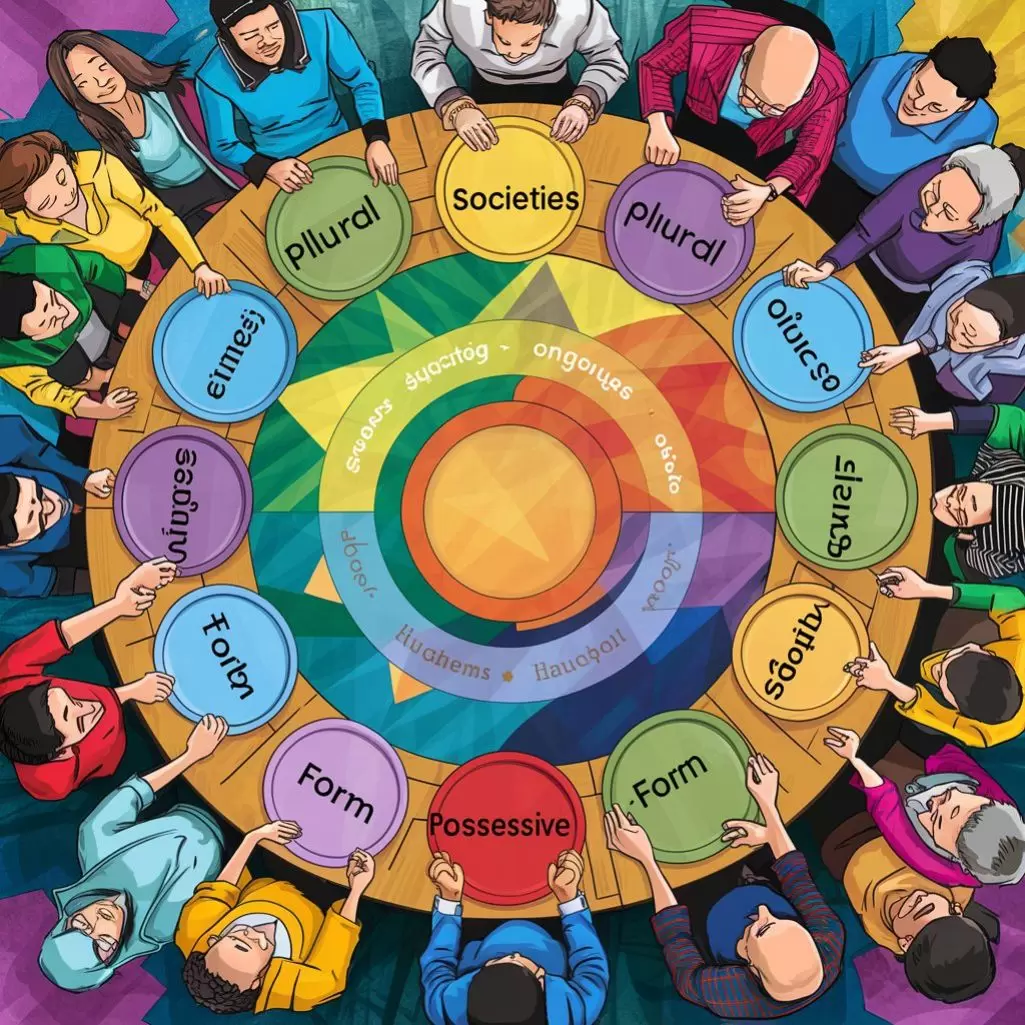In the English language, the use of possessive forms can sometimes be a source of confusion. One such instance arises when determining whether to use “Society’s,” “Societies’,” or “Societies” in a sentence.
Each variation serves a distinct purpose, indicating possession, plurality, or simple noun usage. In this article, we will delve into the nuances of these forms, providing comprehensive examples for clarity.
Society’s: Singular Possessive Form
Society’s is the possessive form of the singular noun “society”. It indicates that something belongs to or is associated with a particular society. This form is used when referring to the possession of a single society.
Examples of Society’s:
- The Society’s decision to implement stricter regulations was met with both praise and criticism.
- Society’s values dictate that individuals should contribute to the common good.
- The society’s annual gala showcased its commitment to charitable causes.
In each of these examples, “Society’s” demonstrates ownership or association with a singular society, whether it’s a decision, values, or an event.
Societies’: Plural Possessive Form

Societies’ is the possessive form of the plural noun “societies”. It indicates that something belongs to or is associated with multiple societies. This form is used when referring to the possession of more than one society.
Examples of Societies’:
- The societies’ collaboration resulted in groundbreaking research in the field of medicine.
- Societies’ traditions often reflect the diverse cultural heritage of their members.
- The international societies’ conference attracted scholars from various academic disciplines.
Here, “Societies’” highlights the collective ownership or association of multiple societies, whether it’s collaboration, traditions, or participation in an event.
Societies: Non-Possessive Form
Societies is the plural form of the noun “society”. It is used to denote multiple societies without indicating possession.
Examples of Societies:
- Various societies around the world promote environmental conservation efforts.
- The historical societies in the region preserve artifacts from different periods.
- Student societies play a crucial role in fostering a sense of community on college campuses.
In these examples, “Societies” is used to simply refer to multiple societies without implying ownership or association.
Common Mistakes and Pitfalls

While the distinctions between “Society’s,” “Societies’,” and “Societies” may seem straightforward, common errors and pitfalls can still arise in their usage. Let’s explore some of these pitfalls and how to avoid them:
1. Misuse of Apostrophes
One common mistake is the incorrect placement of apostrophes. Remember, “Society’s” and “Societies’” already include apostrophes to indicate possession. Adding an additional apostrophe after the “s” is unnecessary and grammatically incorrect.
Incorrect: The society’s’ values shape its members’ behaviors.
Correct: The society’s values shape its members’ behaviors.
2. Confusion with Plurality
It’s crucial to discern whether you’re referring to a singular society or multiple societies. Misinterpreting the intended plurality can lead to confusion for the reader.
Incorrect: Societies’ influence on politics are significant.
Correct: Societies’ influence on politics is significant.
3. Lack of Contextual Clarity
Sometimes, the absence of clear context can obscure the intended meaning. Providing sufficient context ensures that readers understand whether you’re referring to possession, plurality, or simply the noun itself.
Unclear: Societies’ values vary widely.
Clearer: Across different cultures, societies’ values vary widely.
Tips for Proper Usage
To avoid these common pitfalls and ensure accurate usage of “Society’s,” “Societies’,” and “Societies,” consider the following tips:
- Contextual Clarity: Provide sufficient context to clarify whether you’re indicating possession, plurality, or simply referring to the noun.
- Proofreading: Always proofread your writing to catch any errors in apostrophe placement or plurality.
- Consult Style Guides: Refer to reputable style guides such as the Chicago Manual of Style or the Associated Press Stylebook for specific guidelines on possessive forms.
- Ask for Feedback: If in doubt, seek feedback from peers, editors, or language experts to ensure correctness and clarity.
Conclusion
In conclusion, mastering the usage of “Society’s,” “Societies’,” and “Societies” is essential for effective communication in written and spoken English. By understanding the nuances of these forms and avoiding common mistakes, writers can convey their ideas with precision and clarity.
Remember to pay attention to apostrophe placement, discern the intended plurality, and provide clear context to avoid confusion. By following these guidelines and incorporating feedback, writers can navigate the intricacies of possessive forms with confidence and proficiency.
With practice and attention to detail, writers can wield “Society’s,” “Societies’,” and “Societies” adeptly, enriching their language usage and enhancing communication in diverse contexts.
Related Post:

